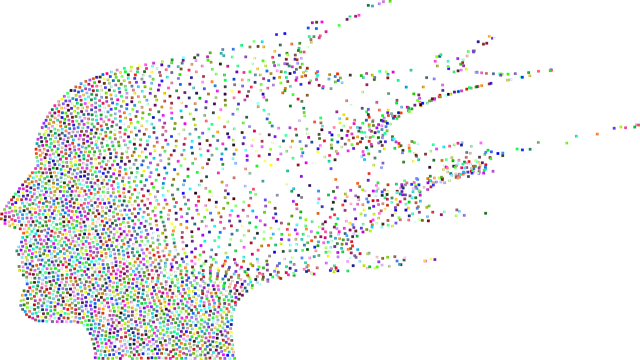Workplace wellness initiatives have been transformed through the integration of advanced technologies, offering comprehensive holistic wellness programs tailored to individual needs. Companies now employ mobile applications for stress management, providing mindfulness and meditation sessions to promote mental clarity and combat workplace stress. Wearable technologies track physical activities in real-time during yoga and fitness classes, ensuring workouts are optimized and engagement sustained. Nutrition and diet counseling are provided via digital platforms with personalized meal planning and nutritional advice to cater to diverse dietary needs. Mental health support is accessible through telehealth services, merging traditional holistic practices with cutting-edge technology for a more effective approach. These initiatives not only enhance employee well-being but also contribute to a more content, healthy, and productive workforce by integrating AI-driven personalized health monitoring with stress management, yoga, fitness, and nutrition guidance, all within the realm of workplace wellness.
In an era where technology permeates every facet of life, the confluence of modern advancements with ancient wellness practices emerges as a transformative force in promoting holistic health. This article delves into the synergistic integration of technology and traditional wellness methods, particularly within workplace environments. We explore how innovative digital platforms are reshaping wellness program management, enhancing employee health through personalized experiences and data-driven insights. From stress management to fitness and nutrition, we examine the role of advanced tools in elevating these components of well-being, ensuring that wellness programs become more than just an initiative—they become a cornerstone of a healthy, productive workforce. Join us as we navigate this intersection of technology and tradition, where wellness meets the future.
- Integrating Technology into Holistic Wellness Programs: A Blueprint for Enhanced Employee Health
- – Exploring digital platforms for wellness program management
- – Case studies on successful technology integration in workplace wellness initiatives
- – The role of AI and data analytics in personalized health monitoring and support
Integrating Technology into Holistic Wellness Programs: A Blueprint for Enhanced Employee Health

In the evolving landscape of corporate wellness initiatives, integrating technology into holistic wellness programs is not just an innovation but a strategic imperative for enhancing employee health. These initiatives often encompass a variety of offerings such as stress management programs, which leverage mobile applications to guide employees through personalized mindfulness and meditation sessions, promoting mental clarity and reducing workplace-related stress. Additionally, advanced wearable technology can monitor physical activity, providing real-time feedback during yoga and fitness classes, thus ensuring a more effective workout and encouraging consistent engagement in physical health activities. Beyond physical wellness, these programs also extend to nutrition and diet counseling, where digital platforms offer personalized meal planning and nutritional guidance tailored to individual dietary needs and preferences. This comprehensive approach ensures that employees have access to a wide array of resources designed to support their overall well-being, fostering an environment where mental health support programs are also readily available through telehealth services, providing a seamless blend of traditional holistic practices with cutting-edge technological solutions. By adopting such a blueprint, organizations can significantly improve the quality and accessibility of their workplace wellness initiatives, leading to a more productive, healthy, and satisfied workforce.
– Exploring digital platforms for wellness program management

In an era where technology is becoming increasingly integrated into every aspect of our lives, the convergence of digital platforms with wellness programs has opened new avenues for promoting holistic health in various settings. Workplace wellness initiatives have found a symbiotic relationship with these technologies, enabling them to manage and monitor the well-being of employees more effectively. Digital solutions now facilitate the scheduling of stress management programs, mindfulness and meditation sessions, yoga and fitness classes, all designed to enhance focus, flexibility, and overall mental health. These platforms often include features that allow for personalized nutrition and diet counseling, providing users with tailored meal plans and nutritional guidance to complement their wellness journey.
The integration of technology in wellness also extends to mental health support programs, where apps offer resources such as mood tracking, cognitive-behavioral therapy exercises, and access to professional mental health support. This seamless blend of technology with traditional wellness practices ensures that individuals can maintain a balanced lifestyle amidst the demands of modern life. The convenience of having a holistic wellness program at one’s fingertips means that people are more likely to engage consistently with their wellness routines, leading to sustained health benefits and an improved quality of life. As a result, the use of technology in wellness is not just a passing trend but a transformative shift in how we approach personal health care and workplace well-being initiatives.
– Case studies on successful technology integration in workplace wellness initiatives

In the realm of workplace wellness initiatives, several companies have pioneered the integration of modern technology with holistic wellness programs to enhance employee well-being. For instance, a tech giant has implemented an advanced biometric tracking system that allows employees to monitor their health metrics in real-time. This innovative approach facilitates personalized nutrition and diet counseling, guiding individuals towards healthier eating habits tailored to their unique physiological needs. Furthermore, the company’s commitment to mental health support programs is evident through its provision of stress management programs, which include mindfulness and meditation sessions conducted via a dedicated app accessible to all staff members. These sessions are designed to foster a calmer work environment, reducing absenteeism and increasing overall productivity.
Another successful case study comes from a forward-thinking corporation that has seamlessly integrated yoga and fitness classes into its daily operations. By partnering with online platforms and wellness experts, employees can attend virtual live-streamed sessions, ensuring flexibility and inclusivity for all. This initiative not only promotes physical health but also encourages a culture of balance and well-being, helping to alleviate work-related stress and cultivate a supportive community within the company. The combination of technology and holistic practices has proven effective in fostering a comprehensive approach to employee health, demonstrating that wellness programs can be dynamic and responsive to modern workplace demands.
– The role of AI and data analytics in personalized health monitoring and support

In today’s fast-paced world, the integration of modern technology with holistic wellness programs has become a cornerstone in fostering comprehensive health and well-being. Artificial Intelligence (AI) plays a pivotal role in personalized health monitoring by analyzing vast datasets to identify patterns and predict potential health issues before they manifest. This proactive approach allows individuals to take charge of their wellness, as AI systems can offer tailored advice and support based on personal health data. For instance, AI-driven wearable devices monitor vital signs and physical activity, providing users with real-time feedback and insights into their health status, which is invaluable for maintaining a balanced lifestyle.
Workplace wellness initiatives have also evolved significantly with the advent of technology, now incorporating stress management programs that leverage data analytics to address the unique needs of employees. These initiatives often include mindfulness and meditation sessions, yoga and fitness classes, and nutrition and diet counseling, all accessible through digital platforms. By providing such resources, companies not only invest in their employees’ physical health but also prioritize mental well-being, creating a supportive environment that promotes productivity and job satisfaction. The integration of AI and data analytics ensures these programs are not one-size-fits-all but rather personalized to each individual’s needs, thereby enhancing the overall effectiveness of workplace wellness initiatives.
Incorporating modern technology into holistic wellness programs offers transformative potential for workplace wellness initiatives. By leveraging digital platforms, companies can effectively manage wellness programs, ensuring that stress management, mindfulness and meditation sessions, yoga and fitness classes, nutrition and diet counseling, and mental health support are readily accessible to employees. The integration of artificial intelligence and data analytics further personalizes health monitoring and support, leading to more tailored and effective interventions. As the future of employee well-being hinges on this harmonious blend of tradition and innovation, it is clear that the intersection of wellness programs and technology paves the way for a healthier, more productive workforce. Embracing this paradigm shift is not just beneficial but essential for organizations striving to maintain a competitive edge in today’s dynamic landscape.
